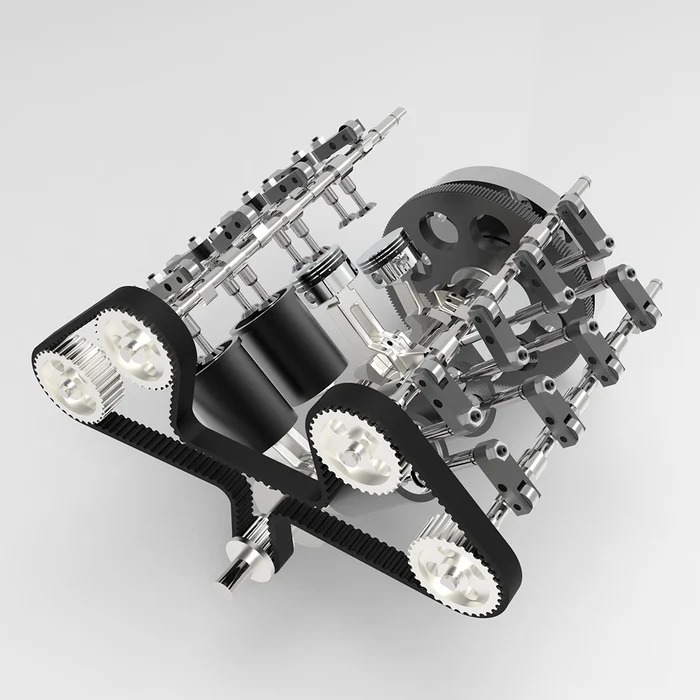Introduction to 8 Cylinder Engines
Understanding the Basics
The 8-cylinder engine, commonly known as a V8 engine, has been a staple in the automotive world for decades. For those wondering is an 8-cylinder good, the answer often lies in its reputation for providing exceptional power and performance. This engine configuration consists of eight cylinders arranged in a V shape, making it a popular choice for trucks, SUVs, and high-performance cars. V8 engines have become synonymous with strength and reliability, appealing to both car enthusiasts and everyday drivers who value power and durability.
The Appeal of 8 Cylinder Engines
One of the primary reasons for the popularity of 8 cylinder engines is their ability to produce high horsepower and torque. This power translates into better acceleration and towing capabilities, making V8 engines ideal for heavy-duty applications. Additionally, many drivers appreciate the distinctive engine sound that V8s produce. This combination of performance and a satisfying auditory experience attracts drivers to vehicles equipped with 8 cylinder engines.
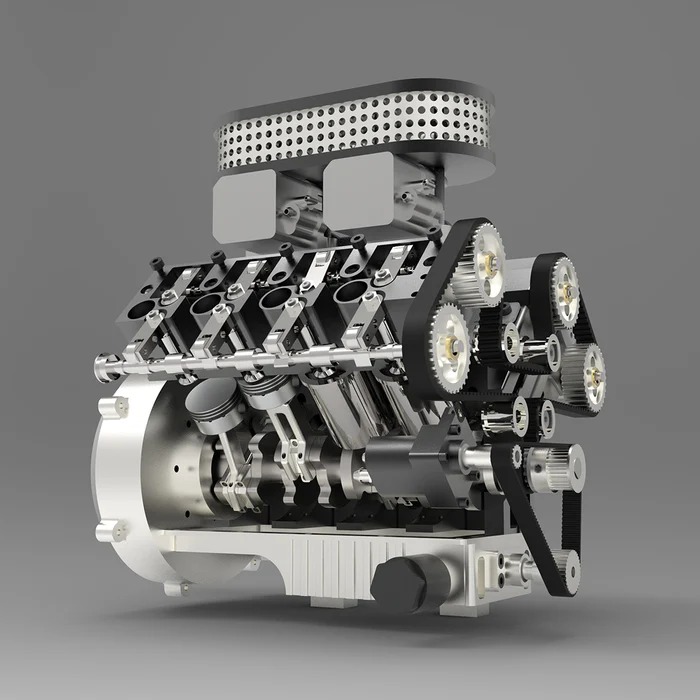
Importance of Proper Maintenance
While 8 cylinder engines are designed to be robust and powerful, they require proper maintenance to ensure longevity and efficiency. Regular maintenance can prevent common issues that arise with high-performance engines. By following a consistent maintenance schedule, owners can keep their engines running smoothly, maintain fuel efficiency, and extend the lifespan of their vehicles. This article covers essential maintenance tips to help you get the most out of your 8 cylinder engine.
Regular Oil Changes
Understanding Oil’s Role
Oil is the lifeblood of any engine, including V8s. It lubricates moving parts, reduces friction, and helps dissipate heat. Over time, oil can break down and become contaminated with dirt, dust, and debris. Regular oil changes are crucial for removing these impurities and refreshing the lubricating properties. This is especially important for high-performance engines that work harder and produce more heat during operation.
Recommended Change Intervals
The frequency of oil changes for an 8 cylinder engine typically depends on several factors, including the manufacturer’s recommendations, driving conditions, and oil type. Many experts suggest changing the oil every 3,000 to 5,000 miles for conventional oil and up to 7,500 miles for synthetic oil. However, consulting the owner’s manual for specific guidelines is essential. Following these intervals can prevent engine wear and prolong engine life.
Choosing the Right Oil
Selecting the right type of oil is also crucial for maintaining your 8 cylinder engine. Always choose oil that meets the specifications outlined in the owner’s manual. Depending on the engine’s requirements, different viscosities may be recommended for different temperatures. Using high-quality oil and filters can help ensure optimal lubrication and protection for your engine. This small step can lead to significant improvements in performance and longevity.
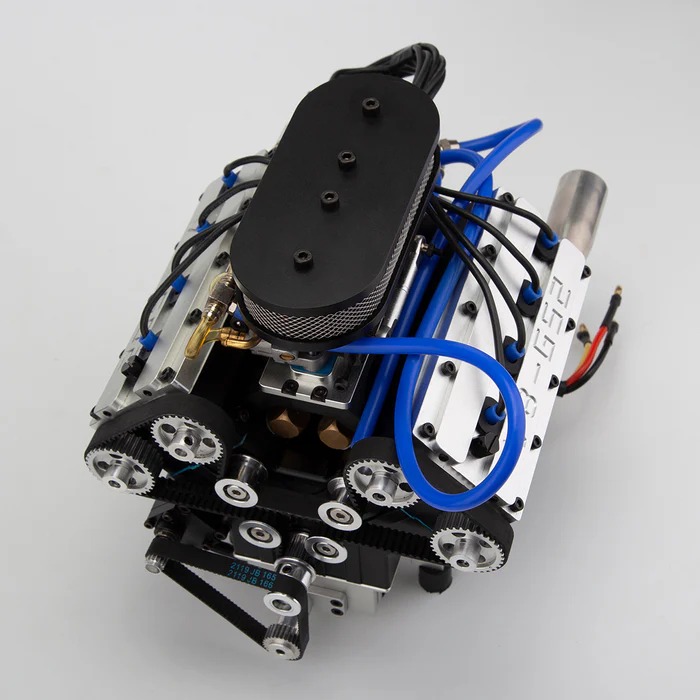
Air Filter Maintenance
The Role of the Air Filter
The air filter plays a vital role in your engine’s performance by ensuring that only clean air enters the combustion chamber. A clean air filter allows the engine to breathe adequately, optimizing the air-fuel mixture for combustion. If the air filter becomes clogged with dirt and debris, it can restrict airflow, leading to decreased engine performance and reduced fuel efficiency.
Regular Inspection and Replacement
To maintain your 8 cylinder engine’s efficiency, regular inspection and replacement of the air filter are crucial. Checking the air filter every 15,000 miles is a good rule of thumb, but this may vary depending on driving conditions. If you frequently drive in dusty environments or heavy traffic, more frequent checks may be necessary. Replacing a dirty or clogged air filter will improve airflow, leading to better engine performance.
Benefits of a Clean Air Filter
A clean air filter not only boosts engine performance but also enhances fuel efficiency. When the engine receives optimal airflow, it can operate more efficiently, translating into better mileage. Some vehicle manufacturers integrate a sensor to monitor air filter cleanliness, making maintenance even easier. By ensuring the air filter is always clean, you can contribute to the health of your engine and the overall efficiency of your vehicle.
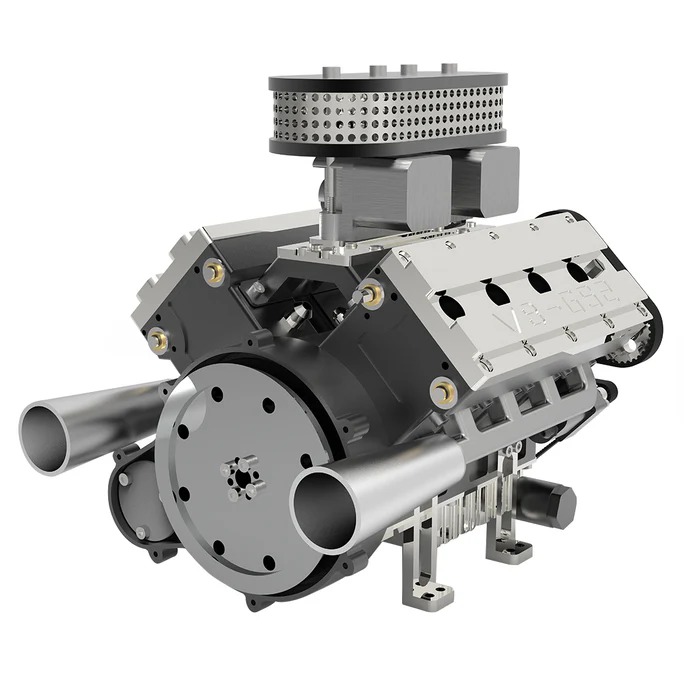
Fuel System Maintenance
Importance of Fuel Quality
For an 8 cylinder engine to perform at its best, it requires high-quality fuel. Poor-quality fuel can lead to a buildup of deposits in the fuel system, negatively impacting engine performance. Regular use of high-octane fuel recommended by the manufacturer helps to prevent knocking and promotes smoother operation. This attention to fuel quality ensures that your engine runs efficiently and reliably.
Fuel Filter Replacement
The fuel filter’s primary responsibility is to trap contaminants in gasoline before they reach the engine. A clogged fuel filter can restrict flow, leading to reduced engine performance and efficiency. Replacement of the fuel filter is a key part of routine maintenance for ensuring the longevity of your engine. Most manufacturers recommend changing the fuel filter every 20,000 to 30,000 miles, but it’s best to consult your owner’s manual for specific guidance.
Cleaning Fuel Injectors
Over time, fuel injectors can become dirty or clogged, leading to poor fuel atomization and inefficient combustion. Consider using fuel injector cleaning products or taking your vehicle to a professional for cleaning. This procedure can improve engine performance, restore lost power, and enhance fuel efficiency. Maintaining a clean fuel system is essential for getting the best performance from your 8 cylinder engine.
Cooling System Care
The Role of the Cooling System
The cooling system plays a crucial role in maintaining engine temperature and preventing overheating. This system consists of the radiator, coolant, water pump, and thermostat. Proper maintenance of the cooling system is essential for keeping your V8 engine running smoothly, especially during hot weather or heavy workloads.
Regular Coolant Checks
Checking the coolant level regularly is important for preventing engine overheating. Ensure the coolant is at the appropriate level in the reservoir. If the level is low, top it off with the recommended mixture of water and coolant. It’s also crucial to monitor the condition of the coolant. If it appears dirty or has a bad odor, it may be time to flush the system completely.
Flushing the Cooling System
Flushing the cooling system should be part of your regular maintenance. This process helps to remove any debris, rust, or buildup that could hinder the system’s performance. Most experts advise flushing the system every two years, but this can vary based on the manufacturer’s recommendations. Properly maintaining the cooling system will help prevent cooling failures and extend the life of your engine.
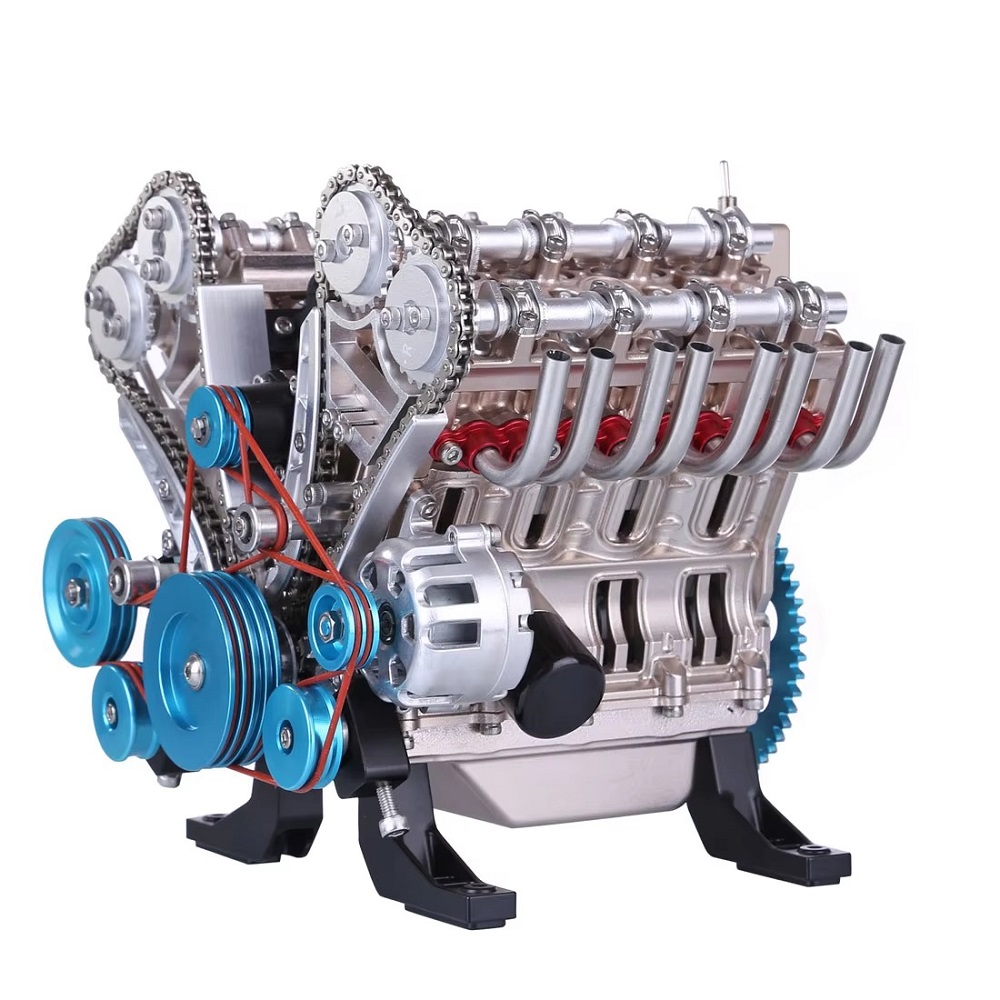
Regular Inspection of Belts and Hoses
Understanding the Importance of Belts and Hoses
Belts and hoses play critical roles in your 8 cylinder engine’s operation. The serpentine belt drives essential components, such as the alternator, water pump, and air conditioning compressor. Hoses transport coolant, oil, and air throughout the engine. Regular inspections of these components can prevent breakdowns and costly repairs.
Signs of Wear and Tear
It’s essential to check for visible signs of wear and tear on belts and hoses. Look for cracks, fraying, or any signs of deterioration. Pay attention to any unusual noises coming from the engine compartment, which might indicate a worn belt. If you notice any signs of leaks around hoses, don’t ignore them. Leaky hoses can lead to overheating or loss of fluids, impacting engine performance.
Replacement Guidelines
Most manufacturers recommend replacing belts every 60,000 to 100,000 miles, but it is wise to follow your specific vehicle’s recommendations. Hoses should be inspected regularly and replaced every five years or as needed. Proactive maintenance of these components will help ensure the reliability and efficiency of your 8 cylinder engine.
Preparing for Seasonal Changes
Seasonal Maintenance Checklists
As seasons change, so do the demands placed on your 8 cylinder engine. Having a seasonal maintenance checklist can help ensure that your vehicle is prepared for the upcoming weather conditions. Before winter, consider checking the antifreeze levels and ensuring the battery is in good condition. In summer, make sure the cooling system is functioning optimally to handle the heat.
Considerations for Extreme Weather
Extreme temperatures can impact your vehicle’s performance. For cold weather, using winter-grade oil is advisable, as it provides better lubrication in low temperatures. Additionally, keeping the fuel tank filled helps prevent condensation in the tank during cold winter months. In hot weather, ensure the air conditioning system is functioning well and that the tires are suitable for warmer conditions.
Adapting Maintenance According to Climatic Conditions
Living in regions with specific climatic challenges may require additional maintenance considerations. In areas with high humidity, for instance, corrosion can be a concern. Regularly inspecting for rust and applying protective coatings can help prevent damage. By adapting maintenance practices to your local environment, you can extend the life of your engine and keep it performing at its best.
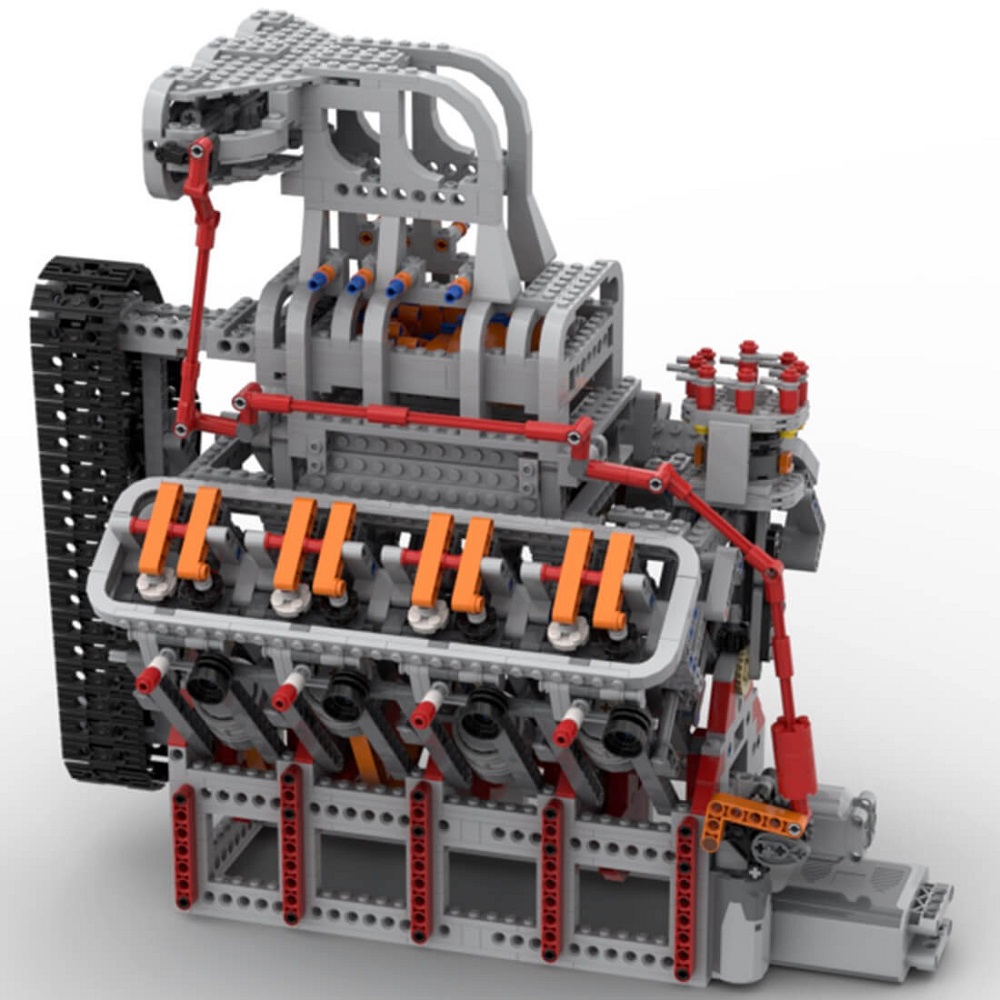
Conclusion: Maximizing Efficiency and Longevity
The Importance of Regular Maintenance
In conclusion, maintaining an 8 cylinder engine is vital to ensuring its longevity and efficiency. Regular inspections, timely oil changes, and the upkeep of essential systems play crucial roles in overall performance. By making a commitment to consistent maintenance, you can avoid potential issues and enjoy a smoother driving experience.
Making Informed Choices
When it comes to the upkeep of your engine, being informed is essential. Knowing when to perform maintenance, what to look for, and how to identify signs of wear can save you time and money in the long run. Follow recommendations from the manufacturer and consult professional mechanics when necessary.
Enjoying the Ride
Ultimately, the goal of proper maintenance is to ensure that you can enjoy your rides without worry. A well-maintained 8 cylinder engine provides the power and performance needed for both everyday commutes and long-distance journeys. By investing time and effort into care, you will be rewarded with reliability and performance that enhances every aspect of your driving experience.
The Journey Ahead
As you embark on every journey with your 8 cylinder engine, remember that the path to longevity and efficiency lies in proactive maintenance and informed choices. With the right care, you can maximize the lifespan of your engine while enjoying all the adventures it brings. Embrace the road ahead with confidence, knowing that your engine is ready for whatever comes next.
